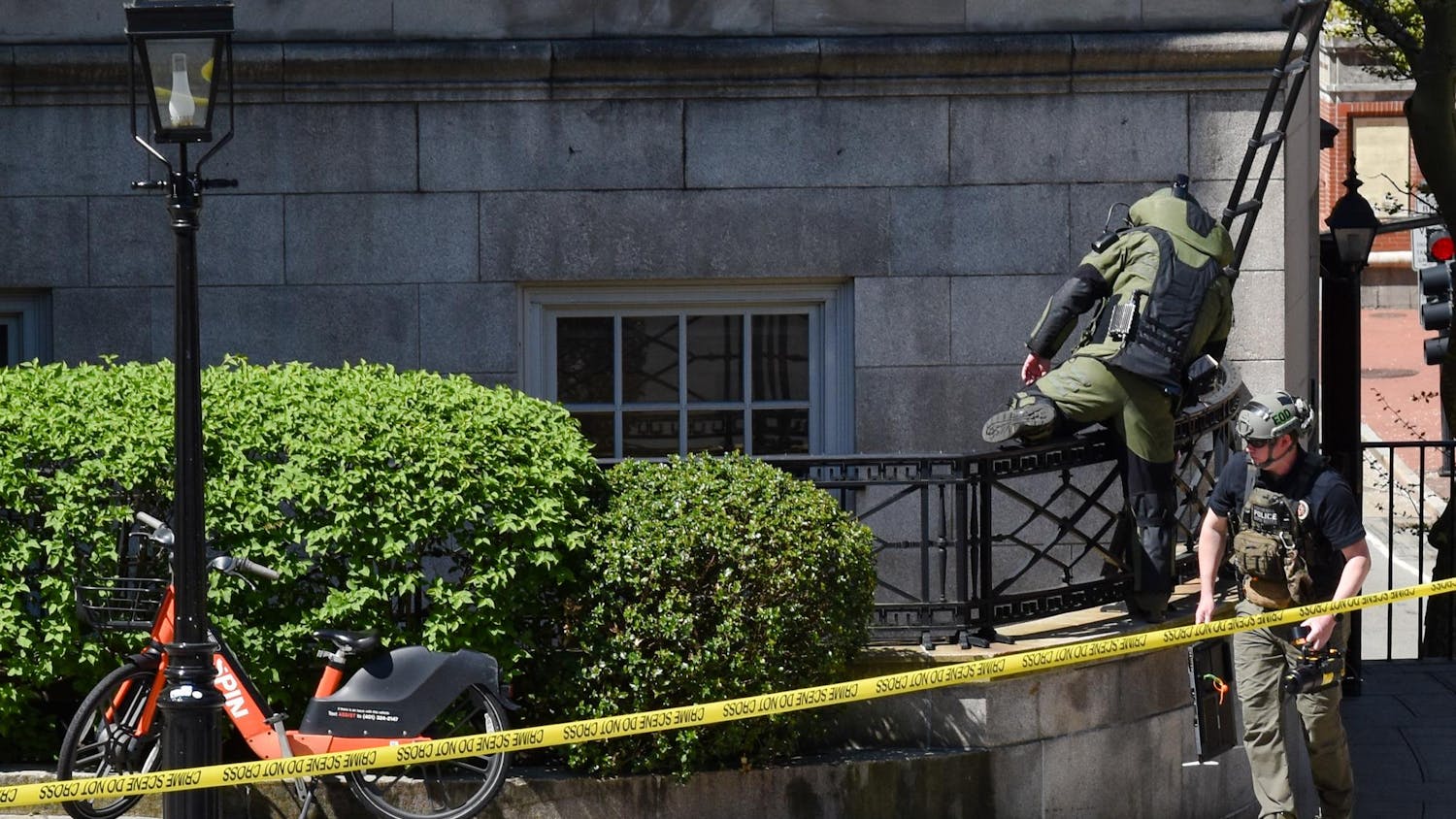Two bills have made progress in Rhode Island's General Assembly that could cost Brown and its students millions of dollars if they become law.
One bill would allow cities to assess a "student impact fee" of $150 per semester for out-of-state students who attend private colleges in Rhode Island. The universities would pay the municipal governments directly, allowing them to raise the funds as they see fit.
The other proposed legislation would allow cities to collect a fee of up to 25 percent of property taxes from nonprofits with properties valued over $20 million. Nonprofits, such as private universities and hospitals, are typically exempt from property taxes.
Rhode Island and its cities have been suffering from the economic crisis that has swept the country, putting pressure on government coffers. Providence has a substantial budget deficit and city leaders are looking to raise additional revenue.
The two bills represent a potential $27 million in annual revenue for the city, according to the Providence Journal. Both proposals originated in the office of Providence Mayor David Cicilline '83.
"It is a basic principle of fairness," Cicilline said. The residents of Rhode Island who pay property taxes are being unfairly burdened and those who take advantage of city services without paying taxes are not doing their "fair share," he said.
"I think it is fair for every person who is a member of a community to contribute to the well-being of the community," Cicilline said.
State Rep. Gordon Fox, D-Dist. 4, sponsored the student impact fee legislation in the House. "While acknowledging the many contributions of the colleges, I believe that everyone will have to contribute their share in order to meet these challenges," he wrote in an e-mail to The Herald.
"Having these institutions share some of the burden will lessen the impact on homeowners and businesses that already pay their fair share of taxes," Fox wrote.
Opponents of the new fees for nonprofits argue that private universities are already contributing their "fair share."
"We feel as though we are already doing our part," said Marisa Quinn, Brown's vice president of public affairs and University relations.
"We understand and appreciate the difficult financial challenges that are being faced in Providence," Quinn said. "We're feeling it as well. We're making difficult decisions based on challenging economic circumstances."
The University has opposed the proposed legislation and has worked to persuade legislators that private universities and their students contribute to Providence and Rhode Island economically and culturally. President Ruth Simmons has made appeals to students and others to lobby legislative leaders to abandon the proposal.
"Higher education is a top engine of economic growth," Quinn said. Brown, along with other colleges in the state, has tried to develop a "knowledge economy," building a long-term economic strategy for Rhode Island, she said. In the short-term, the University is creating jobs by continuing to build and renovate on campus, she added.
Daniel Egan, president of the Association of Independent Colleges and Universities of Rhode Island, a group advocating for the common interests of the eight private schools in the state, questioned the fairness of the proposals.
"The mayor's budget shortfall" is the motivation behind this legislation, Egan said. His group's member schools, also facing financial troubles, are making "drastic changes" to cut costs. Providence should do the same, he said.
The four private universities of Providence — Brown, Rhode Island School of Design, Providence College and Johnson and Wales University — signed an agreement in 2003 committing to contribute nearly $50 million to the city of Providence over twenty years. The only thing that has changed since that agreement is the economic situation, Egan said. Private colleges and universities represent the only sector of the economy that contributes "time, talent and treasure," he said.
The other private schools in the state are Bryant University, New England Institute of Technology, Roger Williams University and Salve Regina University.
The proposals, if passed, would mean a dramatic change in the status and treatment of nonprofits, Egan said. This legislation would undo centuries of thinking that a nonprofit's contributions to the area merit tax-exempt status, he said.
Quinn said the fees assessed on nonprofits raise "questions of legality and constitutionality."
"We're at a crossroads," said State Sen. Lou DiPalma, D-Dist. 12, a member of the body's finance committee. DiPalma opposes both pieces of legislation and called the student impact fee "inappropriate."
Before the General Assembly went into recess in late June, versions of both proposals were introduced to the state House of Representatives and Senate. The finance committees in both bodies heard the bills, but only the House Finance Committee voted 11-4 to pass the student impact fee legislation.
When the General Assembly returns from its recess later this month, the legislation may reappear on the agenda. In order for these bills to become law, both would need to be approved by the finance committees and by the full House and the Senate, then signed by Gov. Donald Carcieri '65.
"This is an issue that will not go away," Cicilline said.




